As the era of the International Space Station winds down, the commercial space sector is accelerating development of new platforms, launchers, and vehicles to fill the vacuum. Among the European frontrunners is The Exploration Company, a fast-scaling Franco-German startup with a bold ambition: to establish Nyx, its proprietary spacecraft, as the go-to autonomous cargo capsule — and perhaps, eventually, a human-rated vehicle.
At Le Bourget Paris Air Show, we met with Victor Maier, Head of Department at The Exploration Company. He said that they are focused on cargo now because that’s where the commercial market is:
“Our investors understand that market returns will come faster from uncrewed missions than from developing a human spaceflight program.”
From Cargo First, to Crewed Flight Later
Nyx is being developed as a modular and reusable spacecraft designed to transport cargo to commercial and institutional space stations — including the ISS for now, and its successors after 2030, when the ISS will be decommissioned.
But unlike some ventures that start with a tourism-first mindset, Nyx — named after the Greek goddess who created the universe — is designed from the ground up with long-term flexibility in mind.
“We are building Nyx so that we can evolve it into a crew-rated vehicle later,” says Maier. “It’s a political decision. Technologically, we’re preparing for it — but Europe needs to step in if we want to send European astronauts with European systems.”
Nyx will begin its life as a cargo capsule certified to dock with the ISS. And since astronauts will already interact with the capsule for payload retrieval, parts of the human spaceflight certification will already be achieved, at least for orbital docking safety.
However, full certification for launch, reentry, and crew life support systems will require additional investment — on the order of €1 billion over a decade.
“That’s not something private investors will back alone,” says Maier. “We need European governments to make this strategic decision.”
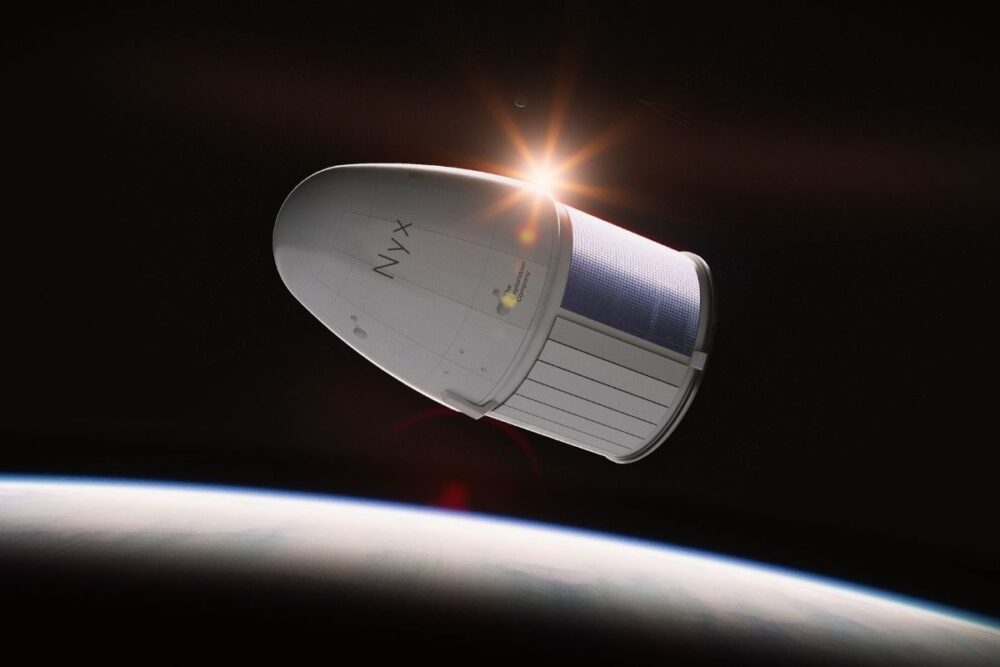
European Tech, Designed In-House
The company has a bold ambition: to reduce Europe’s current reliance on the United States for access to space.
“As of today, we do everything with our partners in the US — we fly on a SpaceX capsule and bring it up to the station on a SpaceX vehicle, so we’re completely dependent on the US,” explains Victor Maier. “What we want to show is that we could offer a European solution to do that here in Europe, starting with cargo operations.'”
The company is therefore committed to developing everything in Europe. What makes Nyx stand out in a crowded field of orbital vehicles is its in-house development of three core systems, all based on 100% European technologies:
First, there is their heat shield technology. For early missions, Nyx will use a cork-based ablative shield, a lightweight and cost-effective solution. For future deep-space missions, a next-generation ceramic composite (developed with the German Space Agency) will protect the capsule during high-velocity reentries — including from the Moon.
Regarding the avionics and autopilot, the full guidance, navigation, and docking system is entirely developed by The Exploration Company. It is a rare competency in Europe. This high-precision technology allows Nyx to conduct autonomous close-proximity operations, with potential applications in defense and satellite servicing.
Finally, for the propulsion, Nyx will use a cryogenic LOX-methane propulsion system, avoiding toxic hydrazine. This sustainable, next-gen thruster is not only safer to handle but also aligns with long-term goals for lunar missions and interplanetary flight.
READ ALSO
A Market Beyond Satellites: Pharma, Biotech, and Even Cosmetics
The Exploration Company sees space as a future platform for life sciences, not just satellites. With microgravity enabling purer crystal formation and tissue growth, Nyx aims to support biotechnology use cases. It could be protein crystallization for drug discovery (e.g., cancer, Alzheimer’s) and even organ printing in microgravity (e.g., liver, heart, lungs).
“Growing proteins in space allows for perfectly shaped crystals,” explains Maier. “On Earth, gravity deforms them. But in orbit, they grow uniformly, which can improve drug efficacy dramatically.”
In the long run, organ printing in orbit may become a reality.
“If we can print a viable liver in space and bring it back to Earth — that could change everything,” says Maier, reflecting on the personal loss of a friend’s father who died waiting for a transplant. “It sounds sci-fi, but the science is there. We just need to invest to make it real.”
Cosmetics R&D is already part of their upcoming missions.
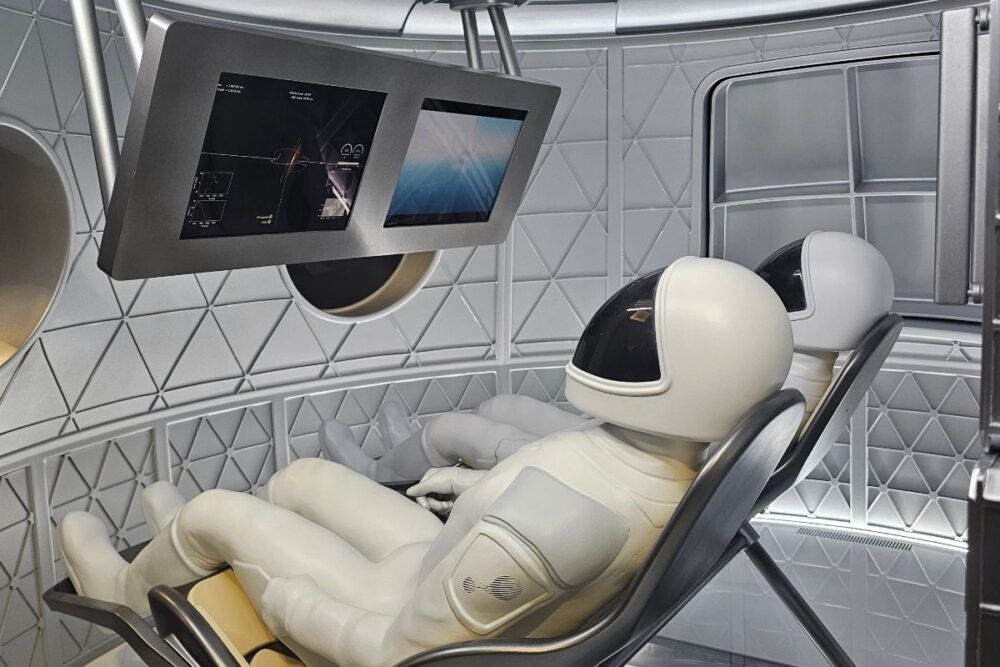
Scaling Fast — And Ambitious
Founded just four years ago, The Exploration Company has grown rapidly. The firm now counts nearly 300 employees, including 110 new recruits in the past six months. With its first Nyx mission to the ISS scheduled for 2028, the company is positioning itself as one of Europe’s most promising space infrastructure startups.
Unlike many young players, Nyx is built with scalability and adaptability at its core — a cargo-first, crew-ready, sustainable capsule made entirely in Europe.
And while Maier acknowledges that space tourism will first be for the wealthy — “just like early aviation” — he believes that in a few decades, orbital flight may become as transformative as commercial air travel.
“We need to give people the chance to see Earth from above,” he says. “It changes your perspective. And maybe, in the times we live in, that’s exactly what we need.”
Read our other stories from Le Bourget Paris Air Show
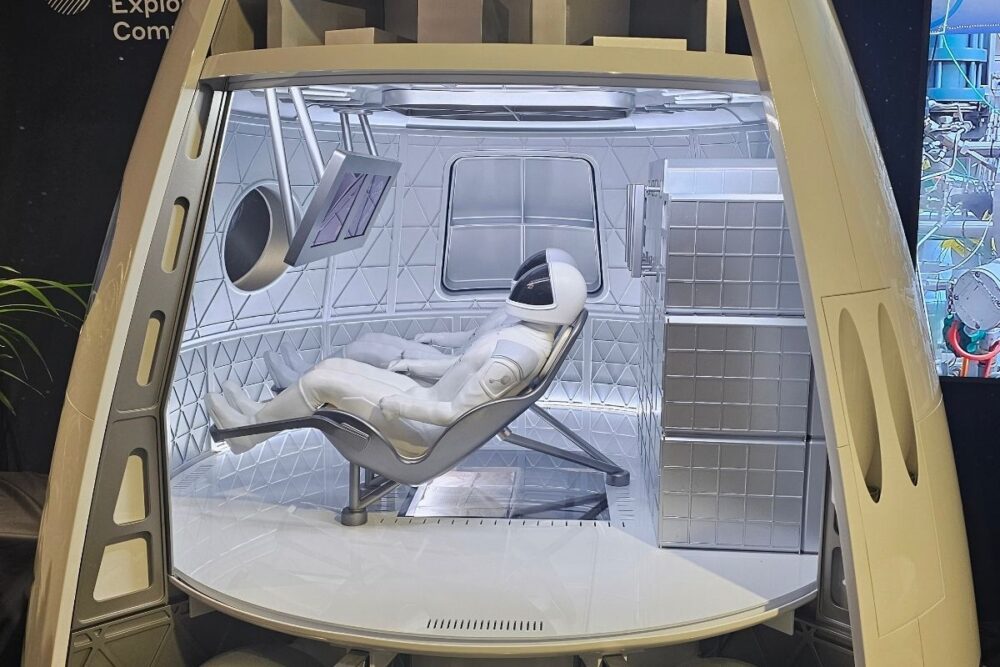




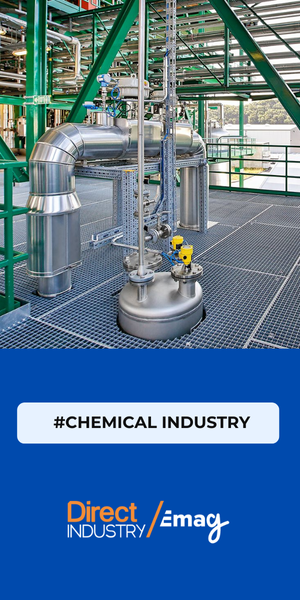
![Image [BUYING GUIDE] How to Choose the Right Industrial Robot?](/wp-content/uploads/sites/3/Industrial-Robot-320x213.jpg)
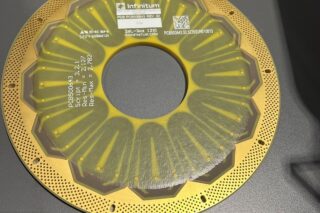
![Image [Buying Guide] How to Choose the Right Safety Shoes?](/wp-content/uploads/sites/3/Safety-Shoes-320x213.jpg)

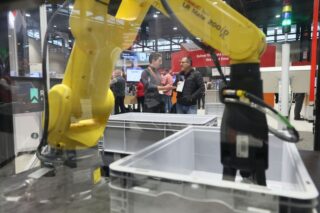
![Image [Buying Guide] How to Choose the Right AMR?](/wp-content/uploads/sites/3/AMR-320x213.jpg)